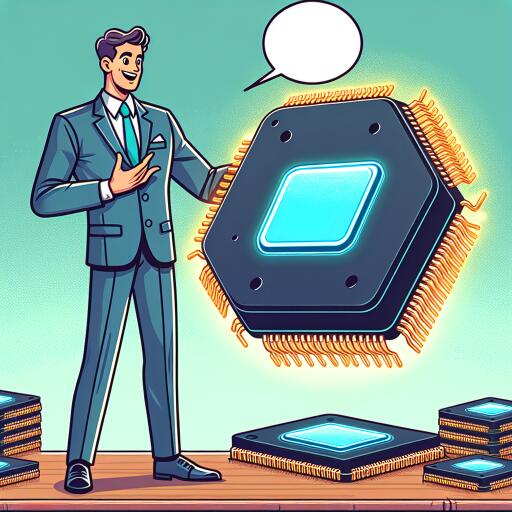
Intel’s Strategic Leap into the Future of Chip Manufacturing: A Comprehensive Overview
In an industry characterized by rapid technological advancement and fierce competition, Intel has boldly reaffirmed its commitment to innovation and growth. Under the leadership of CEO Pat Gelsinger, Intel has launched Intel Foundry, signalling a pivotal shift towards becoming a comprehensive sustainable systems foundry for the AI-driven future. This move not only repositions Intel within the semiconductor industry but also aims to solidify its role in ushering in a new era of computing.
Historically, Intel dominated the chip manufacturing landscape, self-designing and producing its semiconductor products. However, the evolution of the industry brought forward formidable competitors in chip design, like Nvidia and Advanced Micro Devices, while others such as TSMC and Samsung, carved significant niches within chip production. In response, Gelsinger’s strategy, dubbed IDM 2.0, champions a hybrid approach. Intel seeks to integrate device manufacturing, where it both designs and manufactures chips, leveraging its rich history and expertise in both areas to regain its lost supremacy.
The impetus for Intel’s aggressive expansion and innovation is the unrelenting advance of artificial intelligence (AI), which demands increasingly sophisticated semiconductor technology. Intel’s investment in developing next-generation manufacturing processes, including the groundbreaking 18A manufacturing process, is a testament to the company’s dedication to innovation. The introduction of five manufacturing nodes in just four years highlights Intel’s resolve to keep pace with, if not outstrip, the demands of an AI-driven market.
Furthermore, Intel’s approach to sustainability sets a new standard within the foundry industry. The company’s commitment to utilizing renewable electricity in its operations is part of a broader strategy to position itself as the leader in foundry sustainability, marrying environmental responsibility with technological advancement.
Intel’s vision extends beyond hardware. With the announcement of collaborations with prominent tech firms and software giants, including Arm and Microsoft, Intel is not just focused on chip manufacturing. It aims to offer a comprehensive suite of technologies, integrating software capabilities, advanced packaging, and system design services. This holistic approach positions Intel Foundry as a systems foundry, a strategic move designed to meet the burgeoning needs of an AI-centric world.
Distinguished guests and industry leaders, including U.S. Secretary of Commerce Gina Raimondo and CEOs from industry giants like Microsoft and OpenAI, have graced Intel’s first Foundry Direct Connect event. Their participation underlines the significance of Intel’s latest endeavors and the broad support from both the industry and the U.S. government. The CHIPS Act, providing federal backing for semiconductor manufacturing, further bolsters Intel’s ambitious plans.
Gelsinger’s strategic vision is clear: make Intel the epicenter of chip manufacturing for the AI era, offering an unmatched combination of manufacturing excellence, technological innovation, and environmental sustainability. The move to not only design but also manufacture chips for a burgeoning clientele, including major tech entities that prefer to design their chips in-house, signifies a monumental shift. Intel aims to be the foundry of choice, delivering cutting-edge technology solutions on American soil, thus contributing to a balanced and resilient global semiconductor supply chain.
This transformative journey for Intel is not merely about reclaiming its position as a semiconductor leader but also about driving the industry forward in an era increasingly defined by AI and sustainability. With a steadfast focus on innovation, sustainability, and strategic partnerships, Intel is poised to navigate the complexities of the modern tech landscape, delivering solutions that meet the evolving needs of its global clientele while championing environmental stewardship.
As the AI revolution continues to unfold, Intel’s strategic pivot towards becoming a systems foundry marks a new chapter for the company and the semiconductor industry at large. With Gelsinger at the helm, Intel’s trajectory is set towards innovation, growth, and a sustainable future, underscoring the pivotal role of semiconductor technology in shaping our digital world.





Leave a Reply